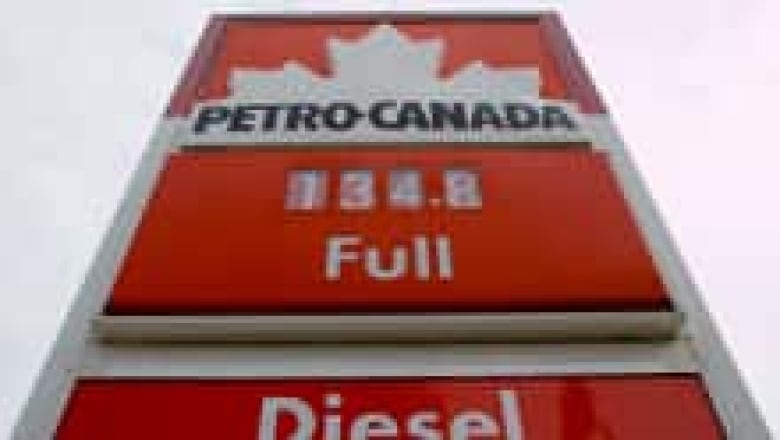Clement wants oil industry to explain gas prices

Federal Industry Minister Tony Clement said Thursday he wants the petroleum industry to explain how it sets gasoline prices.
Clement told a news conference outside the home of a Toronto MP that the government knows high gas prices are pinching the wallets of Canadians.
Clement said he plans to ask executives from refining, distribution and retailing companies to appear before a parliamentary committee to answer questions.
How prices are set, he told reporters, is "not very transparent," and no one has been able to explain to him how prices have come to their current levels.
"No one can understand why last year, when oil per barrel was around $140 or $150, we were paying $1.37 per litre, when this year oil is south of $98 a barrel and yet we're paying more," Clement said.
"That's just one issue. There's a lot of issues that have to be addressed. People deserve the answers to these questions."
NDP not satisfied
But NDP MP Jack Harris said Clement's proposal wasn't good enough, and that Canadians deserve a better explanation. Harris, at a news conference in Ottawa, said Canadians want to know if there's evidence of collusion among oil companies, or price gouging by the industry.
"On a scale of one to ten, this is probably a number one in terms of the level of response that you could have to what consumers are regarding as a very serious problem. It really does show a lack of concern," Harris said in Ottawa.
Harris has called for the appointment of a federal ombudsman to investigate those questions.
Former Liberal MP and gas price watcher Dan McTeague said he's worried the parliamentary committee appearance will be a waste of time.
He said the federal government could have done other things to help the gasoline market, including fighting harder to stop last year's closure of the Shell Canada refinery in Montreal, which accounted for 13 per cent of production in Eastern Canada.
"I am concerned as a former parlimentarian that it takes several months before a committee can actually be constituted," he said after Clement's announcement.
"So while I share the minister's enthusiasm to have yet another study, my concern is overwhelmingly that it may take too long and there will be further escalation of prices, greater volatility."
Calls for tax rebates
McTeague said the government would be better off giving tax rebates to Canadians as federal revenues rise on the back of gas price hikes.
Clement's comments came as motorists welcomed a downswing in pump prices after prices rose 6.5 cents a litre on Tuesday in much of Ontario, Montreal and Vancouver, then by another 2.5 cents per litre on Wednesday.
Some reasons cited for the rising price of gasoline vary — ranging from higher crude prices on the back of a falling U.S. dollar and Middle Eastern political instability, to speculation in wholesale markets.
As well, there are fears that refinery closings in the U.S. Gulf states from springtime flooding on the Mississippi River could cut gas supplies. In Canada, new consumption taxes on gas in Ontario have raised the price in that province since last summer.
Clement did not say when meetings between the government and fuel producers would take place.
He said he has the power to refer any questions of how prices are set to the Federal Competition Bureau.

On Wednesday, Finance Minister Jim Flaherty told CBC-TV’s Evan Solomon on Power & Politics that Ottawa was still committed to letting the markets function.
"Governments should not be regulating markets," Flaherty said. "That's a sure way to make sure the market doesn't work."
Price tracking website Gasbuddy.com reported Thursday the average price across Canada was $1.3359 per litre, down eight-10ths of a cent from a day earlier.
Oil prices climbed still higher Thursday. Crude for June delivery closed on the New York Mercantile Exchange up 76 cents at $98.97 US a barrel, the same day the Paris-based International Energy Agency trimmed its forecast for 2011 global oil demand and warned that high prices could damage the fragile economic recovery.
But the Paris-based agency also warned that continued disruptions to oil supplies — such as that caused by turmoil in Libya — would continue to cause high prices through the rest of this year.
"Persistently high prices at this stage of the economic cycle may ultimately sow the seeds of their own destruction," the IEA said. "Until then, the market confronts fundamentals that still look likely to tighten in 2011."
One industry watcher says any lasting relief from wild price swings could take months to trickle down to the pump.
Jason Parent, a senior partner at energy consultancy the Kent Group, said when supply is as tight as it is right now, significant prices shifts from day to day are to be expected.
With files from The Canadian Press